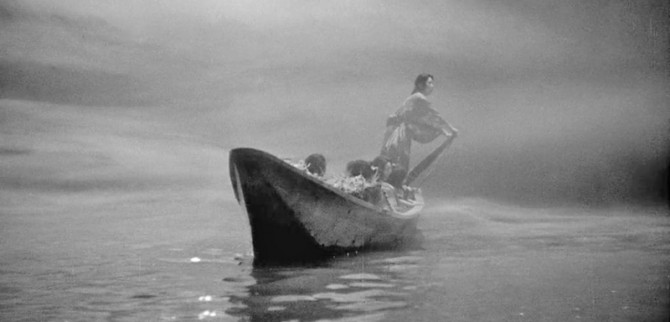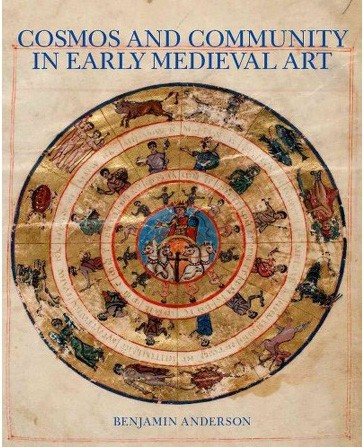Things to Do, Oct. 20-27, 2017
By Daniel Aloi
Greetings from Earth
In celebration of the Voyager spacecraft mission’s 40th anniversary, Cornell Cinema hosts a free screening Oct. 20 at 4:45 p.m. of the “Cosmos: A Spacetime Odyssey” episode “Unafraid of the Dark,” followed by a Q&A with director-producer Ann Druyan and David Pescovitz of Ozma Records, issuer of the Voyager Golden Record box set. Cornell is celebrating Voyager Oct. 19-21. Also showing: “Lady Macbeth,” Oct. 20 at 7 and 9 p.m., Oct. 21 at 9:40 p.m. – a 2017 feminist revenge drama/erotic thriller set in rural Victorian England and adapted from an 1860s Russian novella; Kenji Mizoguchi’s masterpiece “Ugetsu,” Oct. 22 at 7 p.m. – a haunting ghost story from 1953 now digitally restored; and “Deconstructing the Beatles’ Sgt. Pepper’s Lonely Hearts Club Band,” Oct. 25 at 7:15 p.m. – Beatles expert Scott Freiman’s filmed lecture features rare audio and video clips, exploring the making and design of the landmark album 50 years ago.
A free exhibit of one of the only Golden Record covers on Earth, as well as multimedia intended to introduce our planet to extraterrestrials, is on display Friday from 9 a.m. to 5 p.m., and Saturday from 11 a.m. to 5 p.m. in Kroch Library’s Sillerman Rotunda, Level 2B.
Contemporary bard
Joe Goodkin performs an original musical adaptation of “The Odyssey” by Homer, Oct. 24 at 5 p.m. in KG70 Klarman Hall. The performance is open to the public and sponsored by the Department of Classics.
The centerpiece of the interactive program is a 30-minute performance of 24 original songs, relating Odysseus’ story in the spirit of Greek oral tradition. With a bachelor’s degree in classics from the University of Wisconsin, Madison, Goodkin has been performing his version of “The Odyssey” for high school and college audiences since 2002. The show has won three American Society of Composers, Authors and Publishers Composer’s Awards.
“Homer’s ‘Odyssey’ is the ultimate immortal classic. It’s no exaggeration to call it the greatest story ever told: Virtually every novel, play and movie in Western literature owes something to it,” said professor of classics Michael Fontaine. “And now, like a man out of time, comes Joe Goodkin, a modern-day bard of classical Athens. As he strums his guitar and sings, he’s going to help us understand all the drama, the action and the adventure, and in a totally contemporary way.”
The event is co-sponsored by the College of Arts and Sciences and the departments of Near Eastern Studies and Performing and Media Arts.
Across the universe
Benjamin Anderson, assistant professor of the history of art and visual studies, discusses the distinctions between cosmological art across three medieval cultures – and the importance of astronomical imagery to the study of art history – in a Chats in the Stacks book talk, Oct. 25 at 4:30 p.m. in 107 Olin Library.
Anderson’s new book, “Cosmos and Community in Early Medieval Art,” is the first to consider such imagery across the dramatically diverse cultures of Western Europe, Byzantium and the Islamic Middle East.
Using thrones, tables, mantles, frescoes and manuscripts, Anderson shows how cosmological motifs informed relationships between individuals – especially the ruling elite – and communities. In the rapidly changing world of the early Middle Ages, the imagery provided a consistent point of reference across the dominant Frankish, Byzantine and Islamic Empires – although local meanings of the images varied greatly.
Book talks are free and open to the public, with light refreshments provided. For more information, contact okuref@cornell.edu.
Space travel for everyone
Mason Peck, associate professor of mechanical and aerospace engineering, will discuss researching technologies that make space travel accessible in “Traveling the Cosmos: How to Build Your Own Spacecraft,” Oct. 25 from 7-9 p.m. at Casita Del Polaris, 1201 N. Tioga St., Ithaca. Free and open to the public, the event is part of the Science on Tap series, organized by Graduate Women in Science.
Students and staff in Peck’s Space Systems Design Studio at Cornell have collaborated on several Air Force and NASA-funded flight programs, and worked on three small craft launched since 2012 including KickSat, the world’s first crowdfunded spacecraft. His research interests also include the human exploration and settlement of space. A recipient of NASA’s Distinguished Public Service Medal, he served as the agency’s chief technologist during an academic leave from 2011-13 and holds 19 patents in space technology.
Sufi classical jams
Renowned Turkish musician Timucin Cevikoglu will host jam sessions in Sufi classical music, Oct. 26-29 in Uris Hall.
The sessions, Thursday and Friday (Oct. 26-27) at 4 p.m. and Saturday and Sunday (Oct. 28-29) at noon, are open to any musicians willing to learn and play with him, either with provided sheet music or learning to play by ear.
Cevikoglu also performs Oct. 29 at 4 p.m. at the First Congregational Church, 309 Highland Road, Ithaca. The performance is free and open to the public. His visit is being organized by the Cornell Middle Eastern Music Ensemble.
What Cassini discovered
The Cassini spacecraft ended its 13-year odyssey in the Saturn system Sept. 15, with a fiery burnup in Saturn’s atmosphere.
Jonathan Lunine, the David C. Duncan Professor of Astronomy and a member of the Cassini team, will present a public lecture, “Saturn’s System at the End of Cassini,” Oct. 27 at 7:30 p.m. in the Fuertes Observatory classroom.
Lunine will describe some of the highlights of what Cassini discovered during its time in space, especially during the closing months of the mission. His lecture is hosted by the Cornell Astronomical Society.
Conversation: “On Tyranny”
Timothy Snyder’s bestselling book “On Tyranny” presents 20 lessons from the 20th century, adapted to the circumstances of today.
“History does not repeat, but it does instruct,” Snyder writes. “The founders tried to protect us from the threat they knew, the tyranny that overcame ancient democracy. Today, our political order faces new threats, not unlike the totalitarianism of the 20th century. We are no wiser than the Europeans who saw democracy yield to fascism, Nazism or communism. Our one advantage is that we might learn from their experience.”
Cornellians can join the conversation in conjunction with a community read of the book, Oct. 30 at 4:30 p.m. in Klarman Hall’s Rhodes-Rawlings Auditorium. Sign up online for a free copy of “On Tyranny” in advance of the public event.
A panel discussion with professor of sociology Mabel Berezin, Jewish Studies Program director Jonathan Boyarin, Africana studies chair Kevin Gaines and professor of law Aziz Rana will be followed by community conversation.
The event is organized by the Jewish Studies Program, the Society for the Humanities, the American Studies Program and the Africana Studies and Research Center.
Media Contact
Get Cornell news delivered right to your inbox.
Subscribe
